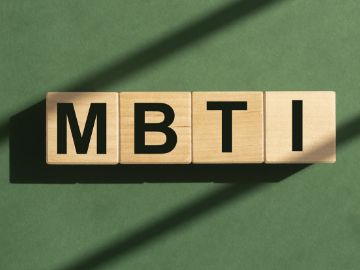The Importance of Feedback in a Job Search

You've perfected your cover letter and resume, interview attire, and responses, yet you still haven't been offered a job. Although you've spent a great deal of time analyzing your own skills, you have personal blind spots only visible to others. Even though it is scary, asking for feedback in a job search is a free source of self-improvement you'd be foolish not to utilize.
Job Search Feedback is a Free Tool
When it comes to the job search, it's important to know yourself and be confident within your limits. This, however, can be restricted due to what the Johari Window refers to as "blind spots". There are traits that other people can see in you that you can't see in yourself. Everybody has them, both positive and negative. Though being criticized by someone is daunting, feedback is an advantageous tool to be armed with.
Feedback is stressful for both the giver and the receiver, but it doesn't have to be so scary. Treat it as constructive criticism. Go into it with the intention to learn and grow. Asking for feedback makes it easier to consume as you'll be mentally prepared.
Better yet, if multiple people corroborate a point, you have reason to believe it's something worth working on. You might receive feedback in your job search regarding something you'd never have expected, like having poor eye contact or an annoying verbal habit. You might also learn about strengths that you don't usually think about.
How to Get Feedback in Your Job Search
So how do you get this valuable feedback? Start with your resume. You've personally scanned it repeatedly, which leaves room for error. No one should ever edit their own material.
Either pay for an online service, or ask someone you trust to check for visual appeal, errors, and missed transferable skills. Your professional and personal mentors are a reliable source of constructive criticism. Co-workers and former bosses may have skill-specific feedback that can assist your job search. This is yet another reason to treat each interaction as a potential future resource.
If you're already conducting your job search, you have feedback opportunities with each recruiter interaction. As a rule of thumb, always follow up with thank you emails. In the same email, ask for some general feedback on how you did.
Yes, even when you receive a rejection notice.
Though you may be feeling disappointed, or even mad, remember that your response can reward you with an opportunity for self-development. Don't wait for your self-pity to subside, respond in a timely manner. If they bother to reply, you win.
Broad or Specific Feedback?
If someone has agreed to provide you with feedback in your job search, don't go in unprepared. For example, ask your current boss 'Do I communicate clearly with team members in meetings?' rather than 'How was I in the meeting?'.
After an interview, try 'Did my answers demonstrate my industry knowledge?'. By narrowing it down, you can finetune specific improvement areas. You may also find gaps in your skills to build on.
Go a step further and request examples of where your behavior reflected that feedback. Blind spots are exactly that, blind to us. With real examples, you can start to self-identify to understand that behavior and what to do about it. This may mean finding a job where you can avoid your weaknesses. Alternatively, you could embark on self-development.
Wanting Feedback is a Transferable Skill
Receive feedback in a respectful manner. The giver is ultimately assisting your job search. Remind them that you value their time and thank them for the constructive criticism. Defending yourself is counterintuitive.
Don't go looking for criticism only to deflect the hard truths. Accept and process what you've learned about yourself, and then reflect on the feedback in your job search journal.
If nothing else, demonstrating that you can handle constructive criticism can win you brownie points with recruiters. They will remember you, and you could be the first point of call for the next open role.
Other candidates may not show this vulnerability and you could receive a last-minute callback. Doors can be re-opened. Stay poised, swallow your pride, and ask for that feedback!
Don't Underestimate the Power of Vulnerability
Asking for feedback isn't easy. You will need to be emotionally prepared, and have specific topic areas in mind. Not only will you impress the recruiter with your willingness to be vulnerable, but the feedback will pay in development opportunities. You will enter the next interview armed with suggestions, and just might walk out with a job!



